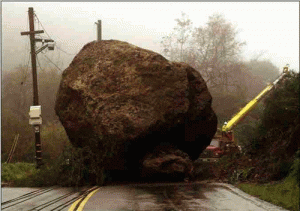
 (1) Please pray for a very good friend of mine, Pastor Graeme Adams, in Dundee, Scotland, who was recently rushed to hospital because of chest pains. The doctors have so far eliminated the idea of him having had a heart attack, but so far they have not determined the cause, though it could well be stress related. He is back home now but is very weak and tired. Please pray for Pastor Graeme and his wife Rhonda, their two sons, and for the precious Church he pastors.
(1) Please pray for a very good friend of mine, Pastor Graeme Adams, in Dundee, Scotland, who was recently rushed to hospital because of chest pains. The doctors have so far eliminated the idea of him having had a heart attack, but so far they have not determined the cause, though it could well be stress related. He is back home now but is very weak and tired. Please pray for Pastor Graeme and his wife Rhonda, their two sons, and for the precious Church he pastors.
Continue reading
Monthly Archives: September 2011
EE-TAOW! (The Mouk Story)
 “And they sang a new song, saying, “Worthy are you to take the scroll and to open its seals, for you were slain, and by your blood you ransomed people for God from every tribe and language and people and nation.” – Revelation 5:9
“And they sang a new song, saying, “Worthy are you to take the scroll and to open its seals, for you were slain, and by your blood you ransomed people for God from every tribe and language and people and nation.” – Revelation 5:9
This (below) is without question, the most powerful and dramatic Christian video I have ever seen. The story of how an unreach people group (the Mouks) were reached by the Gospel is a wonder to behold. The intricate and detailed care and planning that went into their evangelization is a tremendous eye opener, as is the way that the Gospel was taught to them, line by line, precept upon precept. Then to watch as the Bible story unfolds and the Cross and resurrection of Christ is proclaimed, and to witness an entire tribe coming to Christ – well, it never fails to move me deeply to see it.
Though this video was made some years ago, I sincerely believe that any Christian who has a heart to reach others with the Gospel will be very much inspired by watching this, and if someone does not already have such a heart, God may well use this as a means to stir that desire to reach others.
EE-TAOW (The Mouk Story) from oliver wong on Vimeo.
Here in this second video (below), we witness the next chapter in the amazing story – how the Mouks then reached out to other tribes around them with the Gospel:
EE-TAOW (The Next Chapter) from oliver wong on Vimeo.
Problems with Arminian Universal Redemption

Amongst the archives of the Banner of Truth website, I came across this article. The site does not specify the author.
Serious objections must be lodged against Arminian universal redemption, among which are these:
It slanders God’s attributes, such as his love. Arminianism presents a love that actually doesn’t save. It is a love that loves and then, if refused, turns to hatred and anger. It is not unchangeable love that endures from everlasting to everlasting. It provides atonement for all, but then withholds the means of grace that would make that salvation effectual in all lives. Are we to believe that Christ died for everyone in the deepest jungle and the darkest city, but his love doesn’t provide the missionaries, preachers, or sermons that would make his death effectual?
It slanders God’s wisdom. Why would God make a plan to save everyone, then not carry it out? Would he be so foolish as to have his Son pay for the salvation of all if he knew that Christ would not be able to obtain what he paid for? Some say he didn’t realise the consequences; he saw far enough to provide atonement, but couldn’t see that some wouldn’t take it. Does not that assertion slander the wisdom of God? Could God plan and provide atonement, but not realise that his atonement would not be accepted?
I would feel foolish if I went into a store and bought something, then walked out without it. Yet Arminianism asks us to believe that this is true of salvation — that there was a purchase made, a redemption, and yet the Lord walked away without those whom he had redeemed. That view slanders the wisdom of God.
It slanders God’s power. Arminian universalism obliges us to believe that God was able to accomplish the meriting aspect of salvation, but that the applying aspect is dependent on man and his free will. It asks us to believe that God has worked out everyone’s salvation up to a point, but no further for anyone. The implication is that God has built the bridge of salvation between him and us, and we have only to walk over it by accepting his terms of salvation through a free act of the will. ‘God does his part,’ Arminians say, ‘and now we must do our part.’
Calvinists respond by saying that this makes salvation dependent on the will of humanity, thereby reducing God and his power. Instead of our coming to God with our withered hands and saying, ‘If Thou wilt, Thou canst make us whole,’ this view has God coming to us with a withered hand, a hand that is not strong enough to save anyone, and saying, ‘If thou wilt, thou canst complete this salvation; thou canst make me whole.’ In essence, modern evangelistic sermons often take such an approach: ‘God has done much, but he needs you to complete the job.’ Does that way of thinking not slander the all-sufficient power of God? It makes God dependent on the will of man.
It slanders God’s justice. Did Christ satisfy God’s justice for everyone? Did Christ take the punishment due to everybody? If he did, how can God punish anyone? Is it justice to punish one person for the sins of another and later to punish the initial offender again? As Augustus Toplady said,
Payment God cannot twice demand;
First at my bleeding Surety’s hand,
And then again at mine.
God can’t and won’t demand payment twice. Double punishment is injustice.
Continue reading
